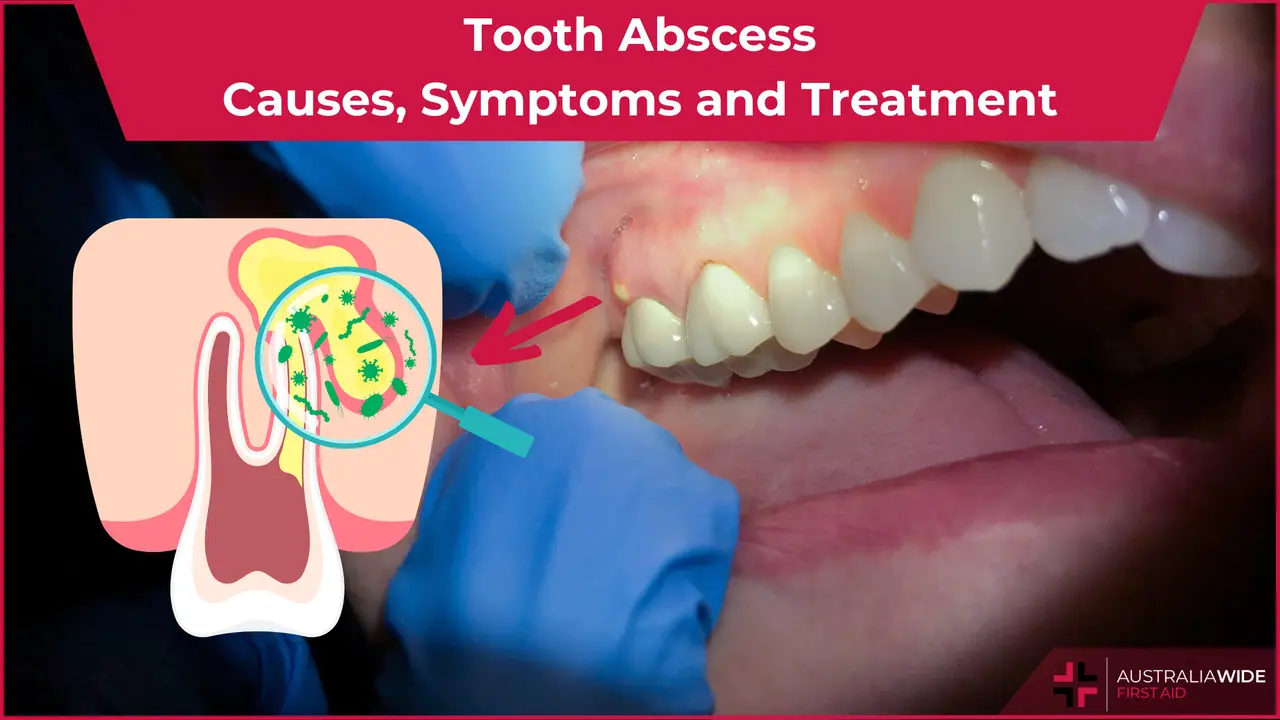Tooth Abscess - Causes, Symptoms and Treatment


Tooth abscesses are a painful and potentially severe condition that wreak havoc on your oral health and overall well-being.
Tooth abscesses are characterized by a painful build-up of pus near the root of a tooth. It can stem from various causes and demands immediate attention.
Whether you've experienced the discomfort of a tooth abscess or wish to fortify your knowledge of dental wellness, this comprehensive guide will shed light on the origin and management of tooth abscess.
Tooth abscesses are typically the result of untreated dental infections, where bacteria multiply and create a pocket of pus near the root of a tooth.
There are several common causes of tooth abscesses:

Drainage:
The primary objective of treatment is to drain the abscess to alleviate pressure and pain. To achieve this, a dentist or oral surgeon will create a small incision into the abscess, allowing the accumulated pus to drain. This procedure provides immediate relief.
Antibiotics:
In cases where the infection has spread or if there is a risk of systemic infection, healthcare providers may prescribe antibiotics to control and eliminate the infection.
Root Canal Treatment:
When the affected tooth can be saved, a root canal procedure is often performed. This involves removing the infected pulp inside the tooth, cleaning and disinfecting the root canals, and sealing the tooth to prevent further infection. A crown may be placed on the tooth to restore its strength and function.
Tooth Extraction:
In situations where the tooth is severely damaged, cannot be saved, or the infection is unresponsive to other treatments, extraction may be necessary. Tooth extraction is typically considered a last resort when other treatment options are not viable.
Pain Management:
Over-the-counter or prescription pain relievers may be recommended to manage the pain associated with the abscess.
Oral Hygiene:
Improving oral hygiene practices is crucial to prevent future abscesses. Regular dental check-ups and cleanings play a pivotal role in detecting and addressing dental issues at an early stage.

Tooth abscesses, if left untreated, can lead to a range of complications that extend beyond the confines of the oral cavity.
Bacteria from a dental infection, including a tooth abscess, can enter the bloodstream and settle on the heart valves, leading to endocarditis.
In rare cases, untreated dental infections can also lead to meningitis, an inflammation of the membranes surrounding the brain and spinal cord. Meningitis is a life-threatening condition that necessitates immediate medical attention.
It is crucial to emphasize that the repercussions of untreated tooth abscesses go beyond oral health. Early intervention and proper dental care are vital to prevent these complications and ensure your health and safety.
If you suspect a tooth abscess or experience dental pain or swelling, seeking immediate dental care is essential to address the issue and prevent these potentially life-threatening complications.

March 25, 2025
Explore non-traditional paths to sobriety, including mindfulness, yoga, nutritional therapy, and community-based support, for a personalized approach to recovery.

September 7, 2022
Menopause is the final period, when a woman, trans man, or non-binary person assigned female at birth's ovaries run out of eggs and the body can no longer ovulate. Menopause comes with several symptoms, complications, and treatment options.

July 26, 2024
Transcutaneous Electrical Nerve Stimulation (TENS) is a therapeutic method of pain relief. It utilises an electrical device that emits electrical currents and streams the impulses via electrode patches attached to the skin.